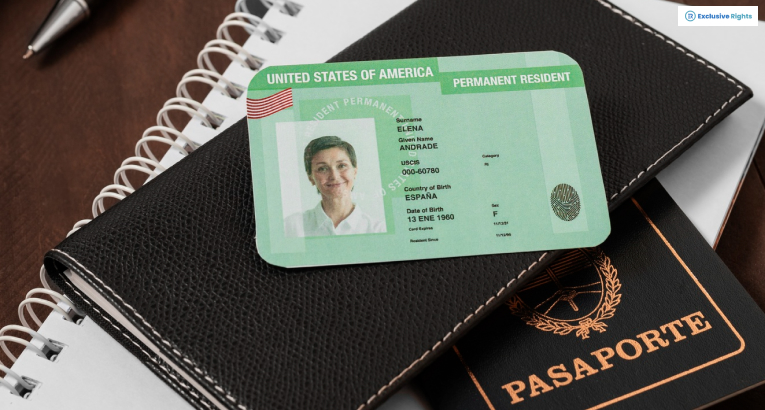
Table Of Contents
- How Is Cross Chargeability Good News?
- Green Card Cross Chargeability
- How To Apply For Cross Chargeability?
- Applying For Cross Chargeability
- How To Present A Note To USCIS Regarding I-485 Cross-Chargeability?
- Note To Uscis
- First Step Is To Write a Friendly Cover Letter
- Second Step Is To Brighten Up Your Application
- Spotlight Your Spouse's Details
- The Package Matters
- To Conclude
What Is Cross Chargeability And How To Apply For It?
We all know how intricate the landscape of immigration law is often. It involves understanding complex concepts. It takes into account the laws of multiple nations. Moreover, where there are immigrants, there are human rights. So, one more crucial aspect of immigration is cross chargeability.
Let us take some time to explain to introduce you to the concept.
Imagine this scenario. There is an immigrant couple. Here, let’s call them Shane and Delaney. Now, they both want green cards. Shane is from New Zealand. Whereas Delaney is from Brazil. Now, in according to conventional immigration laws, here is how it would go. Each of them would deal with their own country’s limits on green card allocations. Depending on the number of applicants, there could be significant delays. However, cross chargeability comes as a savior.
How Is Cross Chargeability Good News?
Cross chargeability allows you to benefit from the quota system. This means that you can use the quota of your spouse’s birth country. This will be a positive point of birth when seeking immigrant visas. In this case, Shane is originally from New Zealand. However, they can make use of Delaney’s Brazilian quota.
It is beneficial because it could expedite the green card process. So, this is where the practical significance of the whole process lies. It helps promote family unity by easing the immigration procedures. Such legal mechanisms are help promote diversity within families.
Green Card Cross Chargeability
In this section we will tell you all about “cross chargeability USCIS”.
So, the U.S. Citizenship and Immigration Services is the official body that looks after immigration procedures. The USCIS is responsible for overseeing and implementing policies related to green cards. This also includes the concept of cross chargeability.
Additionally, the USCIS is the government agency that falls under the purview of the Department of Homeland Security. Naturally, they handle immigration and naturalization matters. Officials here deal with processing of green card applications. They interpret all rules, even that of cross chargeability.
Therefore, for the benefit of cross chargeability provisions, USCIS is the go-to body. Here, they deal with the following.
a. submission of forms.
b. Going through supporting documents.
c. Ensuring legal compliance.
Additionally, all who apply for chargeability should abide by the agency’s guidelines.
How To Apply For Cross Chargeability?
Applying for Cross Chargeability in the United States is a way to get your green card faster. However, it only applies to you if you are married to someone from a different country. Here’s how it works.
If your spouse was born in a country other than yours, you can use their country of birth to apply for a green card. This is called the cross-chargeability rule. Consider it a means to move into a faster line for your green card.
Applying For Cross Chargeability
To do this, you need to gather some documents. This is the list of documents that you could keep handy. Remember, there might be more on this list, as immigration laws are subject to frequent changes.
a. Marriage certificate.
b. Passport photos of both of you.
c. If there’s a petition approval notice, you can include it as well.
How To Present A Note To USCIS Regarding I-485 Cross-Chargeability?
Remember, you and your spouse have to be trying to become permanent residents in the U.S. There should be trials in process at the same time. Teamwork is important here.
The cross-chargeability rule can be used for two types of green card processes.
a. I-485 adjustments of status.
b. Consular processing.
These might be tricky for you to understand, but they are just different ways to get your green card.
Additionally, the government does not force you to use the cross-chargeability rule. It is like an option available to you. Thus, you can choose it only if it helps you.
Note To Uscis
If you want to tell USCIS about cross chargeability for your I-485 application, we are here to help you.
First Step Is To Write a Friendly Cover Letter
It is easier to write than say things sometimes. Thus, you can write a letter explaining why you are asking for cross-chargeability. Remember to state the legal reasons behind it. You can make your case stronger by including documents like your spouse’s birth certificate and your marriage certificate.
Second Step Is To Brighten Up Your Application
Make your I-485 application stand out. Use a bright-colored cover page. Write “Request for Cross Chargeability” boldly on top. Thus help the USCIS know exactly what you are asking for.
Spotlight Your Spouse’s Details
Clearly mention where your spouse was born. Additionally, mention their Green Card nationality in your I-485 application package. This helps USCIS quickly identify the details related to cross-chargeability.
The Package Matters
Put everything together neatly and submit your I-485 application package to USCIS. Include your cover letter. Remember, do not miss out on any of the supporting documents. This ensures that USCIS gets all the information they need to consider your request.
Finally, you should know that it’s like telling a simple story. You explain why you’re asking for cross-chargeability. Additionally, show them the evidence, make it easy to spot, and half of your work is done. Next, send it to USCIS. If you’re unsure, you can always check with an immigration expert. An immigration lawyer will make sure you have covered everything.
To Conclude
To make sure what options are right for you, it’s a good idea to talk to an immigration attorney. They know all the ins and outs of these rules and can guide you through the process.
Therefore, if you’re married to someone from a different country and want to speed up your green card process, cross chargeability is the perfect choice for you. Gather the needed documents. Additionally, make sure you and your spouse are on the same journey to residency. Finally, consider talking to an immigration attorney to make sure it’s the right move for you.
Read Also:









